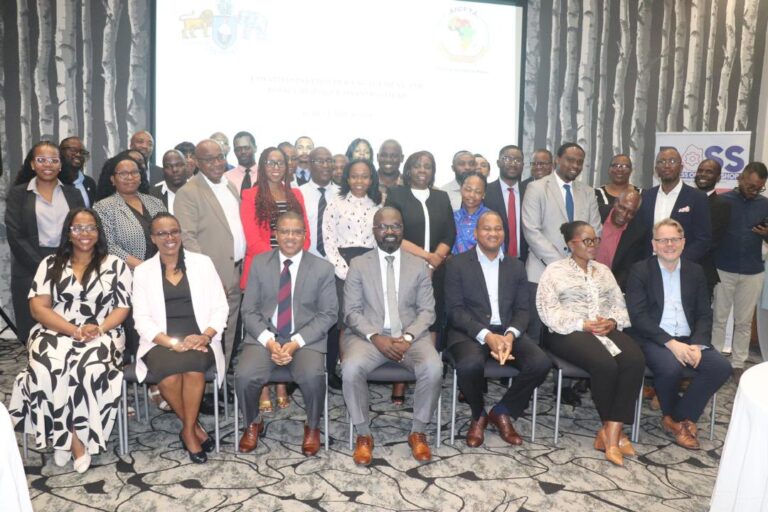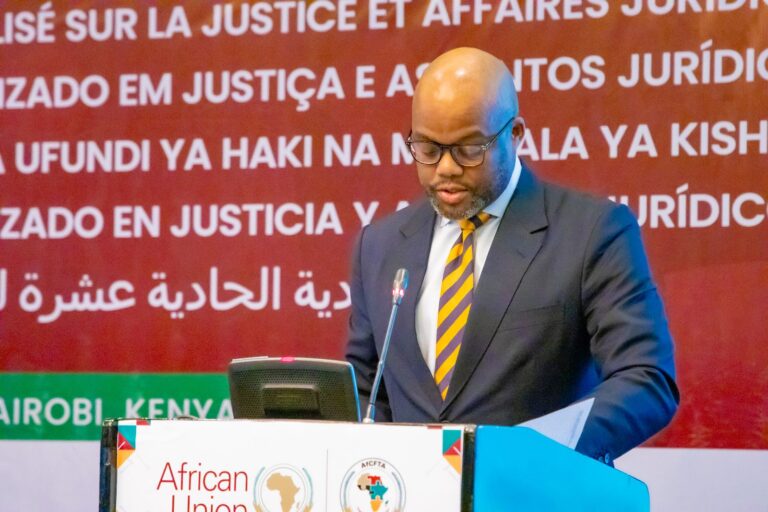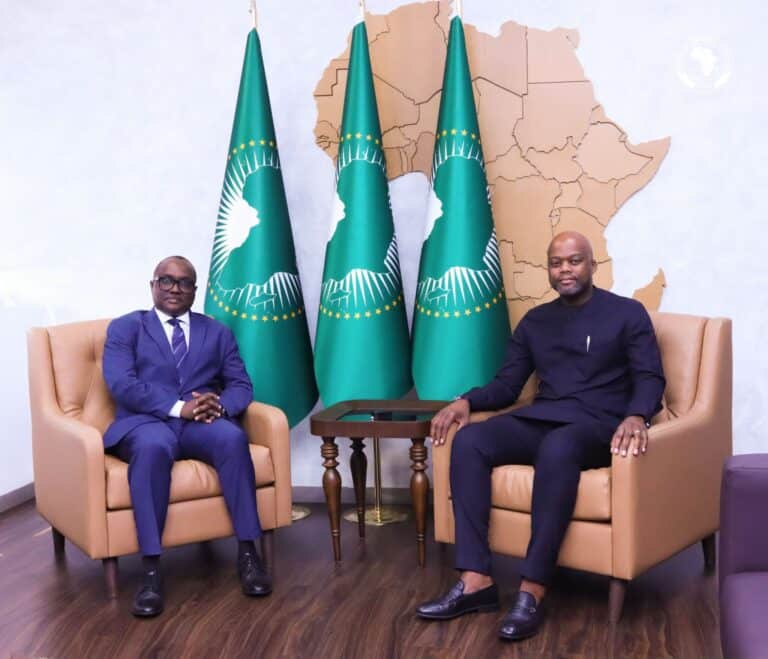The African Continental Free Trade Area (AfCFTA) has emerged as a groundbreaking initiative aimed at enhancing economic integration and promoting intra-African trade. The 2nd Ministerial Retreat of the Council of Ministers on the AfCFTA, held in Nairobi, Kenya under the theme “The Role of the Private Sector in the Implementation of the AfCFTA: Own and Drive AfCFTA,” seeks to delve into vital aspects of the AfCFTA’s progress and highlight the critical role of private sector participation.




The retreat’s agenda showcases a comprehensive approach to tackle key challenges and opportunities within the AfCFTA framework. Among the speakers were high-ranking officials such as such as Hon. Moses Kuria, the Cabinet Secretary of the Ministry of Investment, Trade, and Industry in Kenya, Hon. Yves Fernand Manfoumbi the Chairperson of the AfCFTA Council of Ministers, H.E Mr. Issoufou Mahamadou, Champion of the AfCFTA, and Former President of the Republic of Niger, H.E Azali Assoumani, President of the Union of Comoros, and Chairperson of the AU Assembly of Heads of State and Government. The President of the host country, H.E Dr. William Ruto, President of the Republic of Kenya also graced the occassion and made remarks, signifying the importance placed on the AfCFTA’s successful implementation.
The agenda covers a range of crucial topics that are integral to the AfCFTA’s objectives. These include the adoption of the agenda and work program, presentations on rules of origin for auto and textiles & clothing, and estimations of tariff revenue losses. By addressing these issues, the retreat aims to enhance the clarity and efficiency of trade processes, thus fostering a conducive environment for businesses.



Moreover, proposals on frontloading liberalization of trade in basic agricultural products highlight the commitment to promoting agricultural development and food security within the AfCFTA. The updates on the AfCFTA Guided Trade Initiative demonstrate the expansion of its membership, encompassing both trade in goods and services, as well as the introduction of AfCFTA National Trading Companies. These initiatives foster inclusivity and participation from various sectors, unlocking new opportunities for economic growth.
Customs, trade facilitation, and transit in the AfCFTA are also key areas of focus. Recognizing the importance of efficient cross-border trade, discussions in this regard aim to streamline customs procedures and enhance trade facilitation measures. This will undoubtedly contribute to reducing transaction costs and promoting seamless trade flows across African borders.
Engaging with Members of Parliament is a notable aspect of the retreat, highlighting the significance of legislative participation in shaping AfCFTA policies. This interaction allows for a multi-stakeholder approach, ensuring that the interests of all relevant parties are considered in the decision-making process.
The 2nd Ministerial Retreat of the Council of Ministers on the AfCFTA serves as a pivotal platform to assess the progress and address critical aspects of the AfCFTA’s implementation. The agenda’s focus on private sector engagement, alongside discussions on rules of origin, tariff revenue losses, agricultural trade, and customs facilitation, demonstrates a comprehensive approach to advancing economic integration in Africa.


